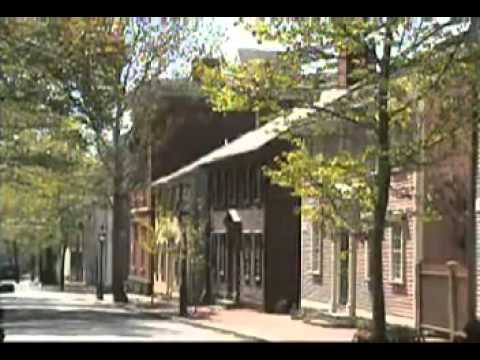Introduction: The Founding Date of Rhode Island Colony
Rhode Island, one of the thirteen original colonies of the United States, has a rich history that dates back to the early years of European settlement in North America. Determining the exact founding date of the Rhode Island Colony has been a topic of debate among historians and scholars. This article aims to explore the early settlements in the Rhode Island area and the key figures involved in the colony’s establishment, as well as shed light on the controversies surrounding its founding date.
Early Settlements in the Rhode Island Area
Before the official establishment of the Rhode Island Colony, the area was home to several Native American tribes, including the Narragansett and Wampanoag peoples. European settlers began to arrive in the region in the early 17th century, with the English establishing various settlements along the coast. These early settlements laid the groundwork for the eventual formation of the Rhode Island Colony.
Roger Williams and the Founding of Providence
One of the most significant figures in the founding of the Rhode Island Colony was Roger Williams. A dissenter from the Massachusetts Bay Colony, Williams sought religious freedom and advocated for the separation of church and state. In 1636, he established the settlement of Providence, which would later become the capital city of Rhode Island. Williams’ commitment to religious tolerance became a fundamental aspect of the colony’s identity.
Anne Hutchinson’s Role in Establishing Portsmouth
Another influential figure in the establishment of Rhode Island was Anne Hutchinson. Like Williams, Hutchinson was also banished from the Massachusetts Bay Colony due to her religious beliefs. In 1638, she and a group of followers founded the settlement of Portsmouth on Aquidneck Island. Hutchinson’s fight for religious freedom and her reputation as a strong, independent woman helped shape the early foundations of the Rhode Island Colony.
William Coddington and the Formation of Newport
William Coddington played a crucial role in the formation of Newport, another significant settlement in Rhode Island. Coddington, a wealthy merchant and political leader, was originally a member of the Massachusetts Bay Colony. In 1639, he led a group of dissidents to establish Newport on Aquidneck Island. Coddington’s influence and resources played a vital role in the growth and prosperity of Newport, which became a major center of trade and maritime activity.
The Unification of Providence, Portsmouth, and Newport
Although Providence, Portsmouth, and Newport were initially separate settlements, they eventually came together to form the Rhode Island Colony. In 1644, the towns entered into a unification agreement known as the "Providence Plantations Patent." This agreement established a common government and provided a framework for self-governance. The unification of these settlements marked an important step in the formation of the Rhode Island Colony as a distinct entity.
The Charter of Rhode Island and Providence Plantations
In 1663, Rhode Island received a royal charter from King Charles II of England, officially establishing it as the Colony of Rhode Island and Providence Plantations. This charter granted the colony a significant degree of autonomy and religious freedom, which attracted settlers seeking a haven for their beliefs. The charter remained in effect until Rhode Island became a state in 1790.
Historical Controversies Surrounding the Founding Date
The exact founding date of the Rhode Island Colony has been a subject of historical controversy. This is partly due to the lack of official records and conflicting accounts from the time period. Additionally, the gradual nature of the colony’s formation, with multiple settlements merging over time, has further complicated the determination of a specific founding date.
Scholars’ Debate on the Exact Founding Date
Scholars have debated the exact founding date of Rhode Island, with various theories proposed. Some suggest that Providence’s establishment in 1636 marks the founding of the colony, while others argue that the unification of Providence, Portsmouth, and Newport in 1644 should be considered the true founding date. Different interpretations of historical documents and varying perspectives on what constitutes a founding event have contributed to the ongoing debate.
Resolving the Controversy: Evidence and Analysis
To resolve the controversy surrounding the founding date, historians have analyzed primary sources, such as letters, diaries, and legal documents from the colonial era. These sources provide valuable insights into the early settlements and the events that shaped Rhode Island’s formation. By carefully examining and cross-referencing these records, historians can piece together a more accurate understanding of the colony’s founding.
Modern Recognition of Rhode Island’s Founding Date
Despite the ongoing scholarly debate, Rhode Island officially recognizes the founding date of Providence in 1636 as the state’s official founding. This date is commemorated annually on Rhode Island’s Founders’ Day. While the controversies surrounding the founding date persist among historians, the recognition of Providence’s establishment reflects the significance of Roger Williams and his ideals of religious freedom and tolerance in shaping the identity of the Rhode Island Colony.
Conclusion: Remembering Rhode Island’s Founding
The founding of the Rhode Island Colony is a complex and fascinating chapter in American history. The early settlements of Providence, Portsmouth, and Newport, along with the unification of these towns, laid the groundwork for the formation of the colony. While the exact founding date remains a point of debate among scholars, the ideals of religious freedom and tolerance championed by figures such as Roger Williams and Anne Hutchinson continue to resonate in the modern state of Rhode Island. By remembering and understanding the history of Rhode Island’s founding, we pay homage to the individuals and events that shaped this unique and influential colony.





